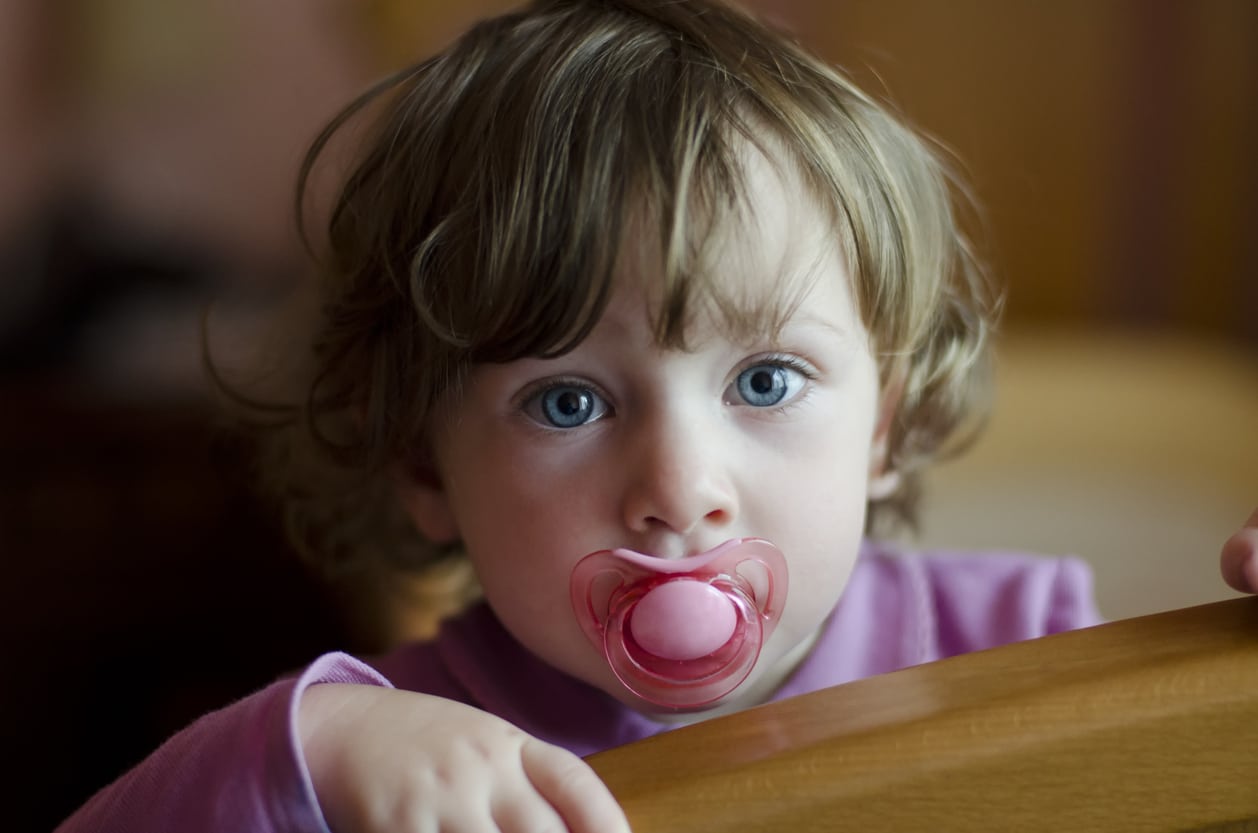
When your child uses a pacifier beyond the age of one year, you worry about your child’s teeth, you stress over the judgment from other parents, and you agonize over how to take away an object from your child that he or she has become emotionally attached to. Before we get into whether pacifiers are good or bad, we want to make it known from the outset that we sympathize and we don’t judge.
There’s also some good news: the science on pacifier use tells us something very different than what parents hear from busybody friends and relatives. Here’s what you should know.
Why the Controversy About Pacifiers
The arguments against pacifier use are three-fold: first, pacifiers may interfere with breastfeeding by causing confusion about latching. Second, pacifiers can cause acute ear infections. Third, pacifiers cause dental problems. Because we’re an orthodontic practice, we’ll leave the first two topics for your pediatrician and focus on the third.
From a dental perspective, pacifiers have been long thought to cause cavities, gum recession, and malocclusion (bite problems). Parents are told to stop using pacifiers as early as possible—or not at all—in order to avoid the dreaded “pacifier teeth,” which usually involves crooked teeth and a bite that does not close in the front.
What Science Actually Says About Pacifiers
Studies have found that many of the supposed consequences of pacifier use only exist when pacifiers are used after the age of five or when pacifiers are used inappropriately, like being dipped in honey or sugar before use. The American Academy of Pediatric Dentistry recommends that children stop using a pacifier by age three; the American Dental Association recommends ending the habit by age four.
In other words, the fact that your two-year-old still uses a pacifier to fall asleep at night is not a big deal. There are differences in teeth between children who stopped using pacifiers by 12 months and those who continued to use them at 24 and 36 months, so kicking the habit by around age 2 is a good idea. Still, the worst problems are associated with pacifier sucking that continues far beyond that age; they will likely need to be corrected with interceptive orthodontic treatment.
It’s also important not to forget that pacifiers have benefits beyond quieting a fussing baby. They have been shown to reduce the likelihood of Sudden Infant Death Syndrome (SIDS) and they provide babies with a means of soothing themselves in stressful situations.
How to Wean Your Child from Pacifiers
The earlier you cut off the pacifier habit, the easier it is for the child to cope with the change. Around the one-year mark is recommended. For older children, it’s important to keep in mind the emotional attachment that’s at play—instead of forcing your toddler to go cold turkey, start with having your child use the pacifier when sleeping, then shift to nighttime only. Remove the pacifier from their mouth as soon as they fall asleep and be consistent—don’t allow other caregivers to give your child the pacifier while you’re trying to wean them from it. Praise and prizes work too, and if your child wants the pacifier during stressful times, provide them with emotional support instead.
Learn More About Pacifier Teeth
Are you concerned that your child has orthodontic problems from prolonged pacifier use? Contact us today at 978-475-0450 to schedule an appointment with Dr. Broccoli.
